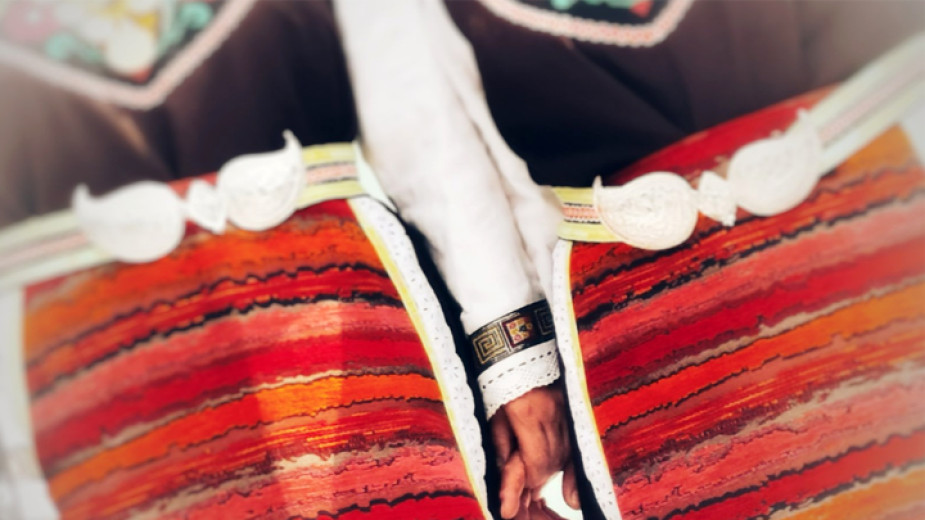 13
13
If you find yourself in Koprivshtitsa at the time of the festival, you will never forget your time here. The town and the Voevodenets meadows in the environs spring to life in colourful, polyphonic, ever changing tableaux. People from Bulgaria and from other countries come here eager to hear and see absolutely everything – the contest programme, the concerts, the handicrafts street, the exhibitions in the Revival-time museums, the street musicians…
And the people of Koprivshtitsa welcome them all with open arms

“I really enjoy the festivals because they breathe life into Koprivshtitsa. Practically every home opens its doors to old and new friends,” says Rayna Kuncheva from Koprivshitsa. She sings with the Koprishki Bisseri, and has taken part in every single festival since 1971. She is also the oldest person representing Koprivshtitsa. “My father played the bagpipes, he was the first performer from Koprivshtitsa in the history of the festival. My grandfather was also a renowned bagpipe player, we all sing and play instruments in our family. I often get asked what keeps me going, and I say – working and singing.”
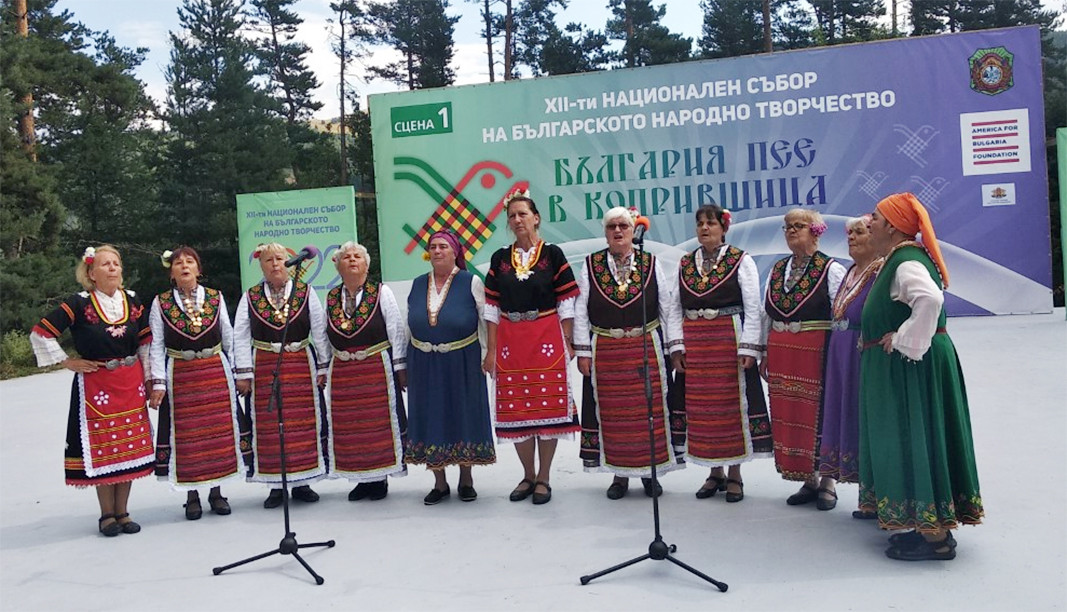
Mladen Urmanov, who plays an ancient instrument called bailama, has also been taking part in the festival for many years. He has won many awards and has made numerous recordings for the BNR. At this year’s edition of the festival he won a gold medal:

“This is a very important element in my life. I am just an ordinary amateur, I learnt to play all by myself and it is such a pleasure to be able to perform on stage. Our music is typical of our village Galata near Teteven, and a few other villages in the area.”
Tough there is no official list of winners for this year as yet, the female folklore group from the village of Pripek is sure to be one of them. Stanislav Dramsuzov is the group’s leader, he also plays the bagpipes. A builder by profession, he has been working with the amateur singers since 1984:
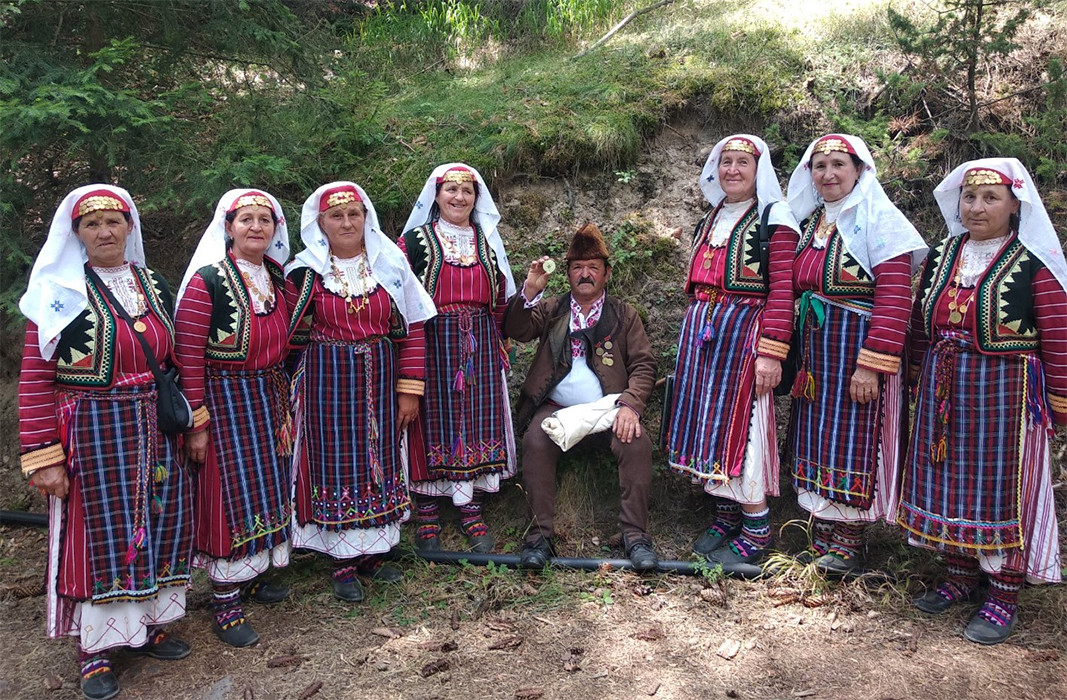
“Our songs are all original folklore, collected from older people. We are still performing them and handing them down to the younger generation lest they should forget them.”
The group from Panicheri village near Hissarya earned a gold medal. Bonka Krasteva:
“The group has been in existence for more than 40 years. We have been to many festivals and we always come back with gold medals, from the Koprivshtitsa festival too. We love to come here, it is a beautiful place, and the best thing is that the fine Bulgarian songs are brought back to life here.”
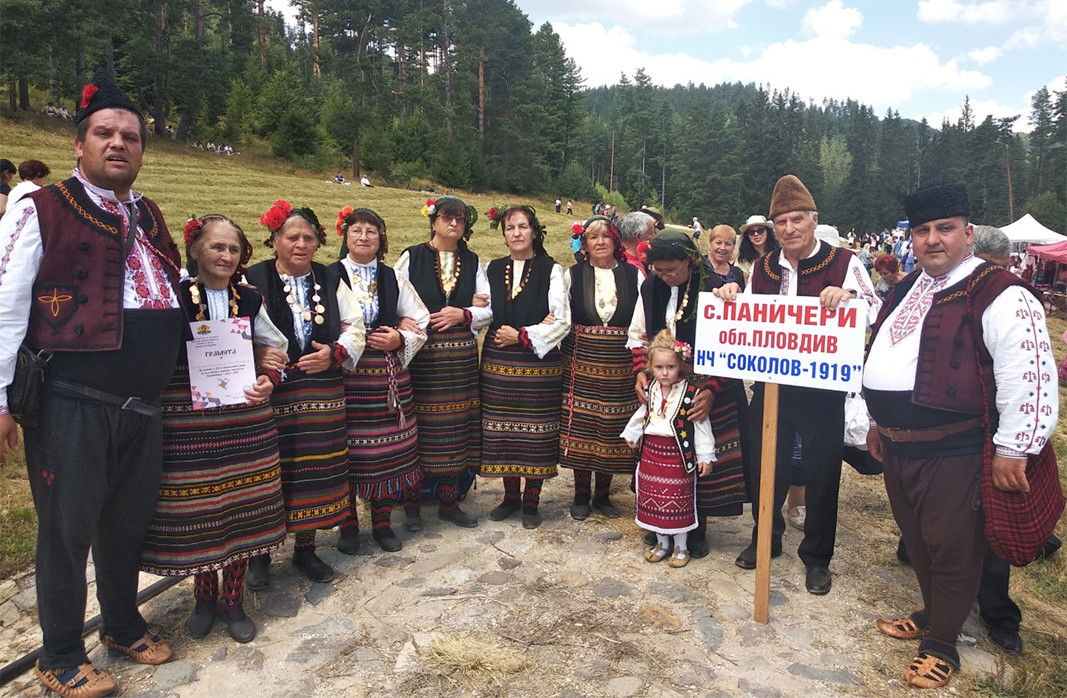
Koprivshtitsa brought together so many of Bulgaria’s living human treasures, that it is impossible to present them all. We shall present some of the performances, recorded by the improvised recording studio of the Bulgarian National Radio, later. One of the performers here is Atanas Georgiev from Stefan Karadzhovo village in Mount Strandzha.
As is the tradition, the festival is attended by researchers of Bulgarian folklore as well as musicians from different folklore regions.
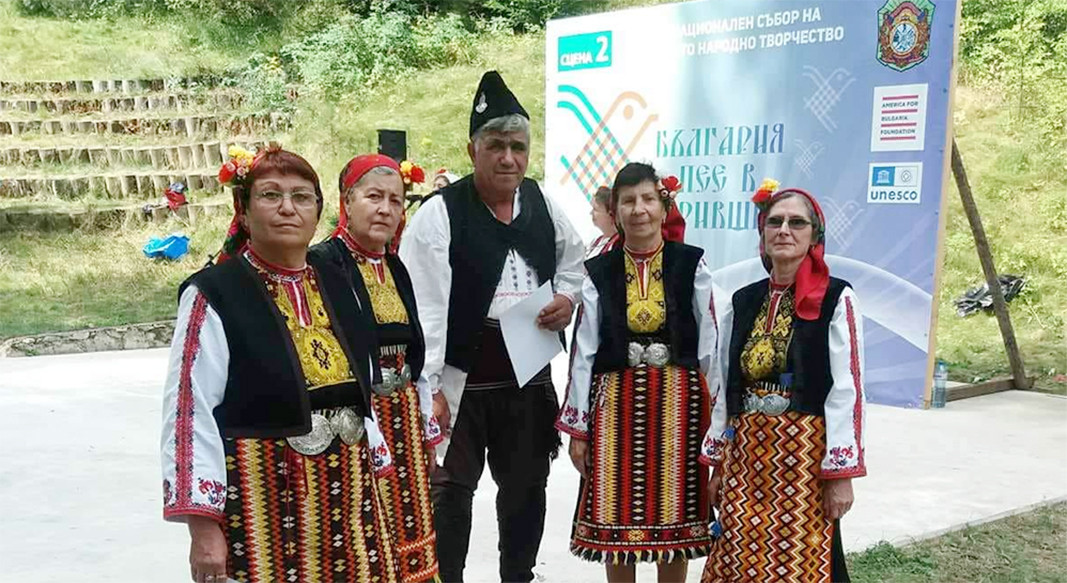 “Koprivshtitsa is an event we all look forward to, it is really exciting to be engaged with Bulgarian traditional art,” says prominent choreographer Vasil Gerlimov. “It is a mission for all people organizing the festival and for all those coming here from the country and abroad. It was very difficult to single out the groups for the two concerts (at the opening and the closing of the festival). The selection was done by the researchers from the Bulgarian Academy of Sciences, with me as coordinator. I think it turned out really well.”
“Koprivshtitsa is an event we all look forward to, it is really exciting to be engaged with Bulgarian traditional art,” says prominent choreographer Vasil Gerlimov. “It is a mission for all people organizing the festival and for all those coming here from the country and abroad. It was very difficult to single out the groups for the two concerts (at the opening and the closing of the festival). The selection was done by the researchers from the Bulgarian Academy of Sciences, with me as coordinator. I think it turned out really well.”

At the official opening visitors saw and heard old rituals, practices, songs and dances on the UNESCO list, and the concert on 7 August presented some of the gold medalists, selected by the 6 juries working around the clock at the six festival stages. Their members include experts from the Bulgarian Academy of Sciences Institute of Ethnology and Folklore Studies with Ethnographic Museum and the Institute of Art Studies. Dr. Veselka Toncheva with more:
“The national festival in Koprivshtitsa has a history going back almost 60 years. I have had the good fortune to be at six of the festivals, first as a university student. Everything I have seen, everything I know goes to prove how significant it is. It is a format that has asserted itself in the country, and it is on the UNESCO list as a good practice. There is no other national event like it.
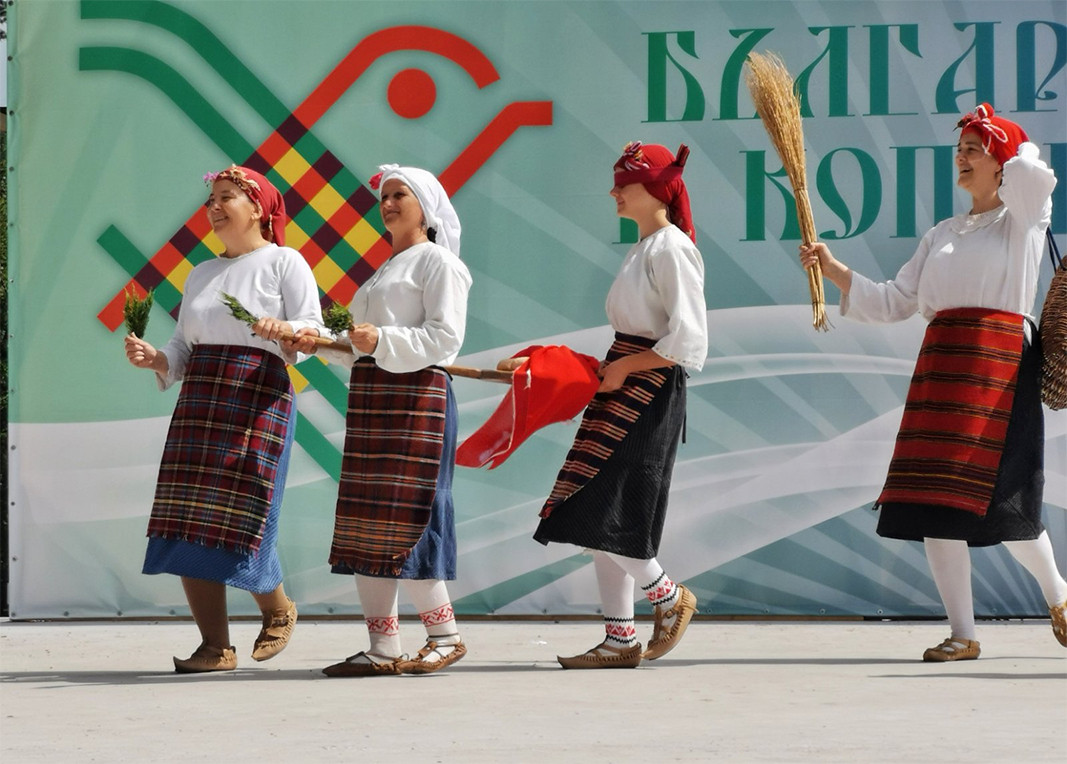
People have not forgotten the one-time rituals – at weddings, harvest time, on St. George’s day, everything is shown on this stage here. We are seeing quite a few young performers. It is a fine festival this year – with six stages, all of them full from morning till night. We, from the Institute of Ethnology and Folklore Studies, when we were drawing up the programme, endeavoured to preserve the regional traits as originally intended – so that people coming to the festival can hear music from the folklore regions Pirin, Thrace, Northern Bulgaria etc., and feel the atmosphere of the different parts of the country as if they have actually travelled across Bulgaria. Koprivshtitsa is just such a musical ramble, and there are still things that are unfamiliar to listeners. Koprivshtitsa matters, it will always matter.”

Clocks and bells will ring out in the center of Stara Zagora on Saturday, when the city will host the XXIV Masquerade Games Festival . The event will start with a traditional parade of participants. Attractive babugers, araps, old men and other..
Today marks the 88th anniversary of the birth of remarkable Bulgaria folk singer Nadka Karadzhova . Born on March 14, 1937 in the then Pazardzhik village of Trivoditsi (today - Plovdiv region), she is a descendant of an old musical family. At the age..
Every year, the chitalishte (community culture club) in the village of Kralevo not far from Targovishte, re-enacts Bulgarian traditions and rituals, organizing contests such as “Master lyutenitsa - maker” and “From granny’s dresser”. And for the..

+359 2 9336 661
